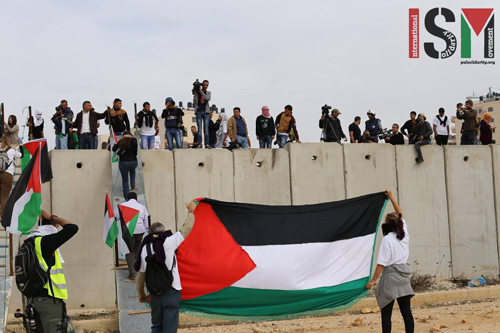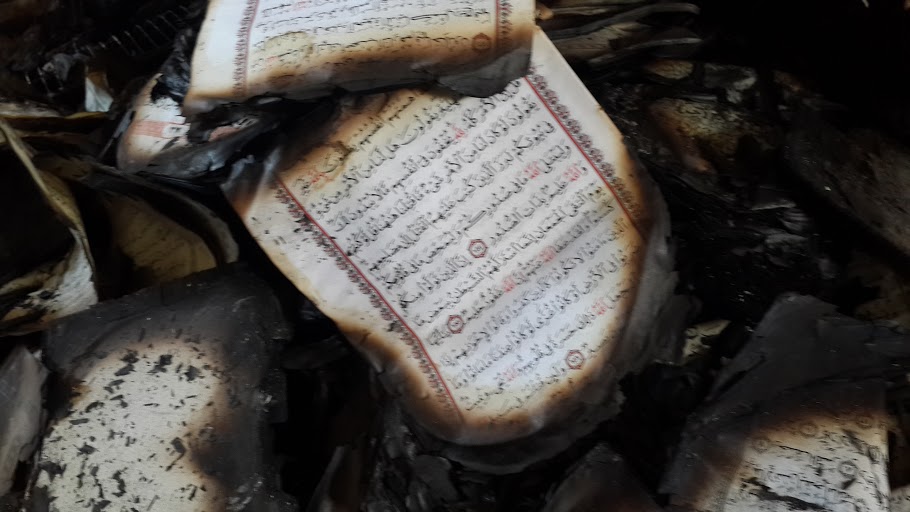Category: Reports
-
VIDEO: Palestinian and international activists cross makeshift bridges over the separation wall
14th November 2014 | International Solidarity Movement | Ramallah, Occupied Palestine Friday morning around 50 Palestinian and international activists used makeshift bridges to cross the Apartheid wall between Qalandiya and Northern Jerusalem. This non-violent direct action was in response to the restrictions Israel had placed on Palestinian worshippers wishing to access Al-Aqsa Mosque in the past months. Activists scaled the…
-
Second mosque burnt in the West Bank this month
12th November 2014 | International Solidarity Movement, Ramallah Team | Mughayir, Occupied Palestine At 18:00 yesterday, the Israeli army closed the main entrance to Mughayir village until midnight. At midnight the army infiltrated the village and patrolled its empty streets for the next four hours. Sometime between 2:30-3:30 am, villagers noticed that the mosque was on fire. Failing to…
-
Israeli forces ignore settler attacking child
9th November 2014 | International Solidarity Movement, Khalil Team | Hebron, Occupied Palestine This afternoon in al-Khalil (Hebron), ISM activists witnessed a Zionist settler push a 10-year-old child to the ground. The settler was driving close to Salaymeh checkpoint, through a group of Palestinian schoolchildren walking home. He suddenly stopped, exited his car, and violently pushed…



